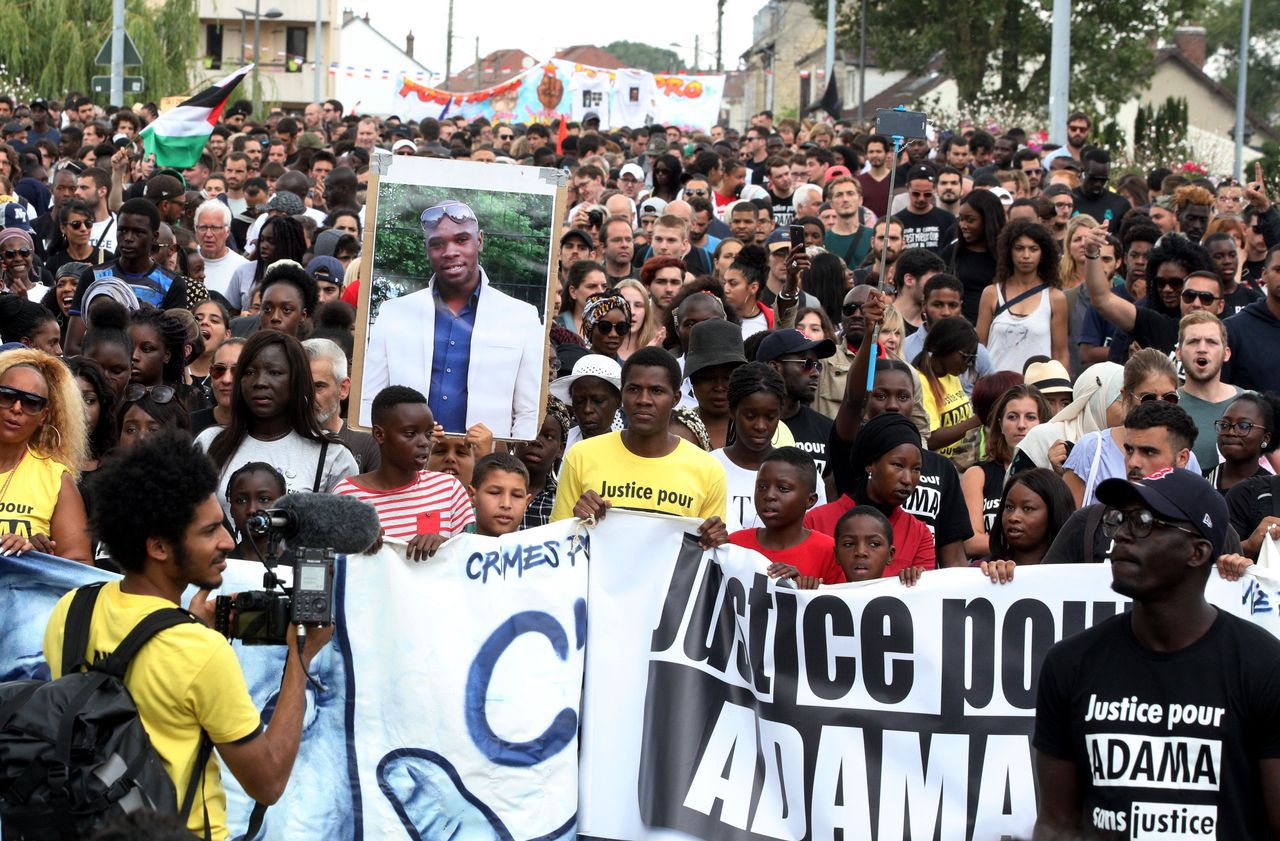New medical expertise eliminates the responsibility for the technique of arresting the gendarmes in the death of Adama Traoré, in 2016, during his arrest. "Adama Traoré did not die from" positional asphyxia ", but from cardiogenic edema", conclude the doctors, according to a source familiar with the matter.
On July 19, 2016, a hot day, the young man died in the barracks of the Persian gendarmes, almost two hours after his arrest in his city of Beaumont-sur-Oise (Val-d'Oise). After having escaped a first arrest, he had been arrested at the end of a chase, in the house where he had hidden.
During his arrest Adama Traore "took the weight of our bodies to all three," said one of the gendarmes during an interrogation, raising questions about the method used. The three gendarmes who carried out the arrest were then placed under the intermediary status of assisted witnesses.
A battle of expertise and counter-expertise
Since then, the defense and the family have fought a legal but also a medical battle. On September 14, 2018, a summary expert opinion given to the judges concluded that "the vital prognosis (was) irreversibly engaged" even before the arrest. While the examining magistrates were preparing to dismiss the case, a medical report produced at the request of the family had swept away the conclusions of the investigation.
This report from a sickle cell specialist attributed death to "an acute asphyxia syndrome" and called for "asking the question of positional or mechanical asphyxia". In other words, he questioned the technique of arresting the gendarmes. The judges then ordered a new expertise, the AFP reveals the conclusions.
"We do not find any obvious pathology explaining this cardiogenic edema," note the expert doctors. They note however that "the association of pulmonary sarcoidosis (rare pathology, Editor's note), hypertrophic heart disease and a sickle cell trait (a genetic disease, Editor's note) could probably have contributed to it in a context of intense stress and physical exertion, under high concentration of tetrahydrocannabinol (active ingredient in cannabis editor's note) ”.
Newsletter - The essentials of the news
Every morning, the news seen by Le ParisienI'm registering
Your email address is collected by Le Parisien to allow you to receive our news and commercial offers. Find out more
"This is only the third expertise which confirms the absence of any responsibility on the part of the gendarmes," reacted Me Rodolphe Bosselut, lawyer for the gendarmes, to AFP.

